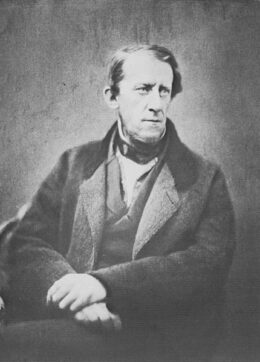Printed
24 pages
Author(s)
Crocodilus und Persea
Oder der Verzauberte Krebs
This time Franz von Pocci has apparently not found the formula that usually describes the genre of each of his plays in an often humorous tone. Here the fairy tale meets the satire of the modern world: Casperl's opening monologue immediately refers to railway speculation, inflation and the high cost of living. The wonder element is also mocked in the parody of magic and freemasonry, which Pocci would later use in Casperl in der Zauberflöte.
The hero helps reconcile a divided family
While fishing in a lake despite the prohibition, Casperl catches a crawfish, which tells him its story: it is actually called Zimbimbimperl and was transformed into a crawfish by her father, the magician Crocodilus, after a violent argument with her mother, the Egyptian fairy Persea. Persea travels the world to find her daughter, when she meets Casperl who informs her of Zimbimbimperl's fate. The gods of Egypt return her daughter to her, but demand that she sacrifices Casperl to them in return. In the meantime, Crocodilus has been captured and sold in a menagerie. But he manages to escape and takes refuge in the lake, surprising the reunion of mother and daughter. He wants to devour them, but Casperl intervenes and knocks him out. Crocodilus is calmed by the blow to the head. He has barely reconciled with his family when the owner of the Löwenmajer menagerie comes to claim him for his circus. Casperl kills him and declares the sacrifice to the gods complete. The play ends with a grand finale and an apotheosis of 'Casperl the Wise'.
First performance
Münchner Marionettentheater
Publications and translations
Franz Pocci: Lustiges Komödienbüchlein, fünftes Bändchen. München, Ernst Stahl, 1875
Franz von Pocci: Lustiges Komödienbüchlein 5. Editio Monacensia, München, Allitera Verlag, 2010
